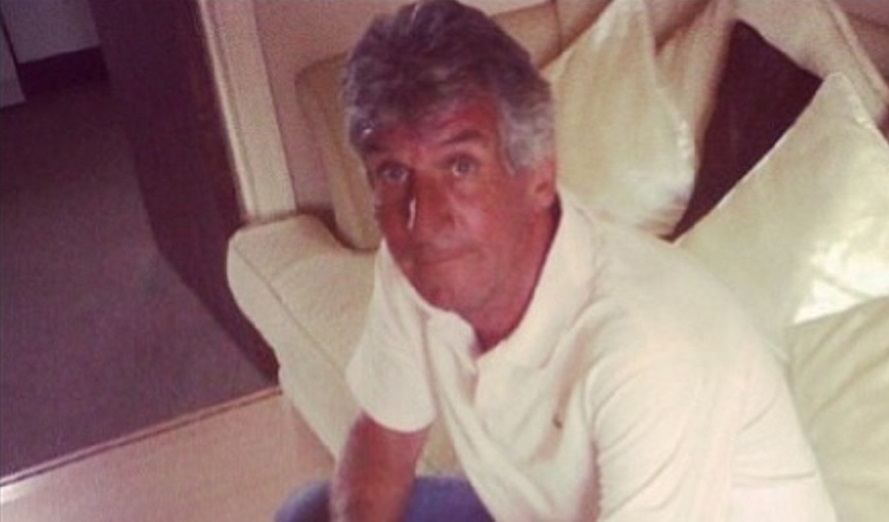Verdict at Inquest finds hospital failures and neglect contributed to father-of-three’s death
- Dec 2, 2015
- EmmaArnold
An inquest into the death of 52 year old Paul Stockton which saw 'disturbing' CCTV footage and were told that he 'probably would have survived' if he'd been treated sooner has today reached a verdict of accidental death contributed to by neglect.
PotterReesDolan represented Paul Stockton’s three daughters in a clinical negligence claim against Trafford General Hospital where Paul Stockton had been admitted after suffering a seizure in October 2013.

The Manchester Coroner, sitting with a jury, last week heard about the circumstances surrounding Paul Stockton's death. The Inquest saw extensive CCTV footage, which the family watched, showing a security guard, who was employed for the safety of patients, sitting on Mr Stockton for 10 minutes.
The footage also showed him being grabbed and pinned against a wall. It was also alleged in evidence that he was slapped by the same security guard whilst in the bathroom.
The Stockton family have maintained throughout that the treatment he received was adversely affected because he was thought to be an alcoholic and there was a failure on the part of hospital staff to recognise and treat his ultimately fatal head injury.
Sophie Stockton, one of Mr Stockton's daughters, said:
I’m happy with the verdict. It’s now in black and white that he died due to neglect and not as a result of anything he did.
Paul Stockton was admitted to Trafford General Hospital on the 15th October 2013 following a seizure and, although he was recovering well, he died three days later with no warning as far as his family were concerned. At the time of this death his daughters were informed he had a brain haemorrhage and following a post mortem examination, the Coroner’s office issued a certificate stating that he had died of natural causes. As far as the family was concerned it was a terrible tragedy but was just ‘one of those things’.
Then, four months later, in February 2014, completely out of the blue, the family received a report into the circumstances surrounding Mr Stockton’s care, which had been carried out by a ‘High Level Investigation Team’ at Trafford General.
The family were shocked to read its contents, much of which they hadn’t known, including the fact that Mr Stockton had fallen over, suffering a head injury which hadn’t been properly treated and that he’d allegedly been ‘slapped’ by a security guard.
It was following the revelations of this report that Mr Stockton’s daughters referred the matter back to the Coroner resulting in this week’s Inquest.
In the intervening period PotterReesDolan acting on behalf of Mr Stockton’s daughters pursued a clinical negligence claim against the hospital. The family were pleased to reach an out of court settlement but were very disappointed that despite the shocking circumstances surrounding their father’s death, the Trust responsible for Trafford General were unwilling to pay for their legal representation at the Inquest.
The Jury today concluded that Mr Stockton had not be appropriately managed during his three day inpatient stay at Trafford General Hospital in October 2013 and that following his fall, no adequate steps were taken by the medical or nursing staff to manage Mr Stockton or to diagnose an acute subdural haemorrhage, a significant bleed on the brain.
Hannah Bottomley, clinical negligence solicitor at PotterReesDolan, represented the family. She said:
This was a particularly tragic case where due to multiple failures within the hospital system Mr Stockton’s very serious brain injury was not recognised resulting in his premature death. Mr Stockton’s daughters have been through a very distressing time, exacerbated by the initial lack of openness from the hospital and the subsequent refusal by the Trust to meet their legal representation costs at Inquest.
This Inquest was especially distressing and it is frustrating and disappointing that Mr Stockton’s daughters were unable to be supported in the way that they, and we, had hoped. A verdict of accidental death contributed to by neglect is a relatively rare conclusion and one which I am sure the Coroner and Jury did not come to lightly. It is, however, a measure of the failings Mr Stockton was subjected to.
During the Inquest Mr Stockton’s family were assured by the Trust that steps had been put in place and training arranged to ensure such a tragic incident is not repeated. We hope that the Trust do put these changes in place to protect other patients’ well-being.
